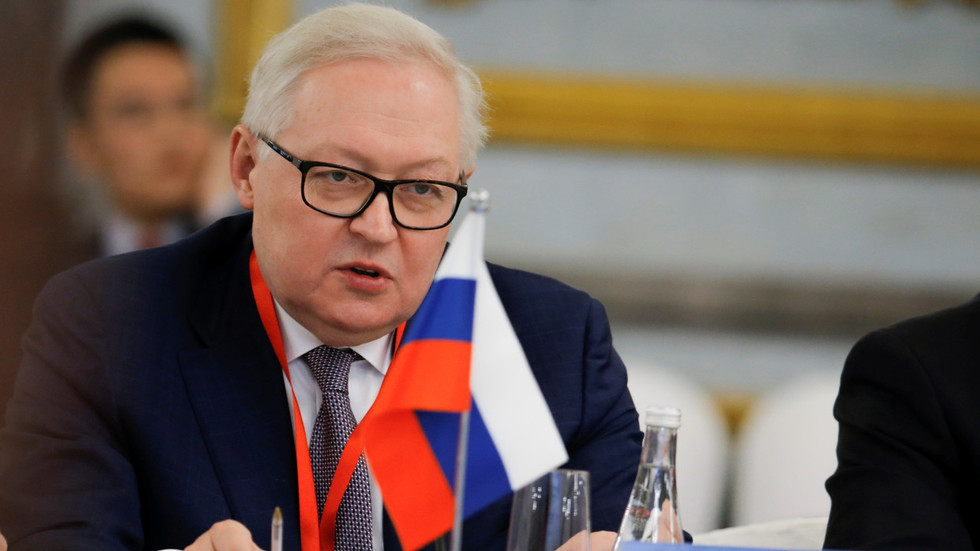One of the world's last major arms control agreements, the Intermediate-Range Nuclear Forces Treaty (INF), has by now come to an end, as Washington formally suspended compliance with the agreement this week. The Kremlin is holding out hope, however, that Washington will follow Russia’s example and declare and enforce a moratorium on the deployment of short- and intermediate-range nuclear missiles in Europe.
Russia’s Deputy Foreign Minister Sergei Ryabkov, in an interview with TASS, said he hopes both sides can avoid a new arms race and continue dialogue, saying, "nobody is taking the issue of agreements off the table."
“We have suggested to the U.S. and other NATO members to consider announcing a moratorium on the deployment of intermediate-range missiles,” Ryabkov said on Friday.
He said the Russian government recommends the U.S. and NATO declare, "the same moratorium on deploying intermediate-range and shorter-range equipment as we have, the same moratorium Vladimir Putin declared, saying that Russia will refrain from deploying these systems when we acquire them unless the American equipment is deployed in certain regions."
On Friday, U.S. Secretary of State Mike Pompeo posted to his Twitter account that the United States has formally withdrawn from the INF treaty.
U.S. President Donald Trump pulled the United States from the agreement, citing concerns that Russia has been violating its terms, which Moscow has denied. The U.S. and NATO say Russia has been developing the 9M729 ground-launched cruise missile system, also known as SSC-8, which according to the U.S. has a range of 500 km (311 mi.), which violates the terms of the UNF treaty. But the Russian government maintains that the system has a range of up to only 480 km (298 mi.), keeping it within the allowable ranges permitted by the pact.
"Pressure and force is not the language we would allow anyone to use talking to us," Ryabkov said in his interview, maintaining that Russia hopes, "common sense and concern for the security of the European continent and global security will outweigh other concerns related to relying on force and pressure in all areas."
Signed in 1987 under the Ronald Regan administration, the INF treaty banned the United States and the Soviet Union from possessing, producing or test-flying ground-launched nuclear cruise and ballistic missiles having a range of 500 to 5,500 kilometers, or roughly 300 to 3,400 miles. The treaty was considered a major milestone, ending a four-decades-long arms race between the two global nuclear powers.
Now, with INF's demise, Russia and the U.S. are free to develop and deploy such missiles. The New Strategic Arms Reduction Treaty, known as "New START," is the last major arms control treaty remaining between the two countries. The agreement expires in February 2021, and Washington has not expressed intention to prolong it.







 Azerbaijan and Armenia started the process of demarcation of their border on Tuesday, with the installation of the first border markers based on ge...
Azerbaijan and Armenia started the process of demarcation of their border on Tuesday, with the installation of the first border markers based on ge...
 Armenian sappers commenced on Monday mine-clearance operations in the territories adjacent to the Saint Mary Church in village of Voskepar (Armenia...
Armenian sappers commenced on Monday mine-clearance operations in the territories adjacent to the Saint Mary Church in village of Voskepar (Armenia...
 Iran has refuted reports of alleged damage to Shimon Peres Negev Nuclear Research Centre located southeast of Dimona, Israel, during the recent air...
Iran has refuted reports of alleged damage to Shimon Peres Negev Nuclear Research Centre located southeast of Dimona, Israel, during the recent air...
 Iran and Pakistan have signed eight cooperation documents in various fields, and agreed to strengthen ties to fight terrorism in the region.
Iran and Pakistan have signed eight cooperation documents in various fields, and agreed to strengthen ties to fight terrorism in the region.



